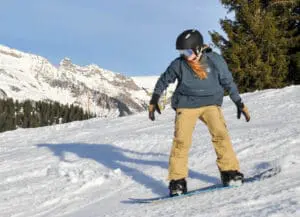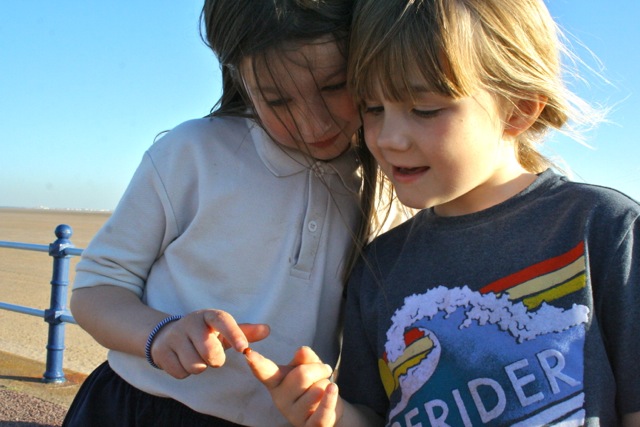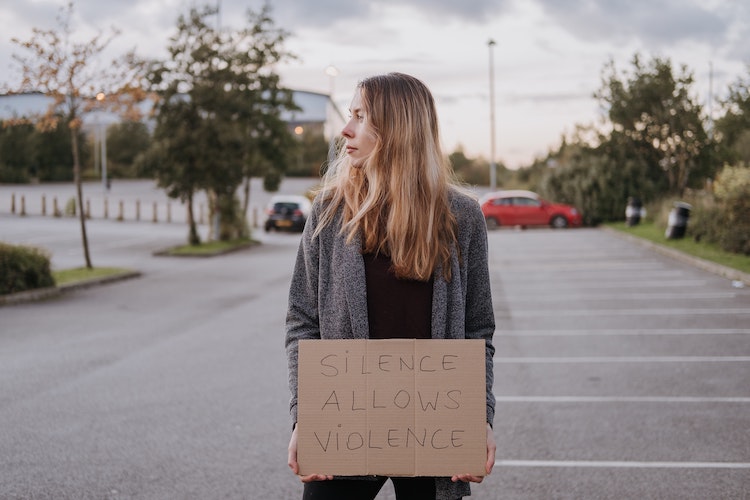
What values do our sons need to learn in these times?
Educate our sons! Protect your daughters! I’ve seen a lot of conversation online lately about violence against women, how we need to protect our daughters, but also to educate our sons. But what does that look like? And are we talking about the right things?
The problem with “Educate our Sons”
For a long time, the narrative around violence against women went like this: women are smaller and weaker and men are sometimes more predatory, so women must take steps to be safe. Don’t get in cars with people you don’t know, take a self-defence class, that sort of thing.
Quite rightly, women are fed up of shouldering the responsibility for men’s behaviour. So we’re asking men to behave in ways that don’t make women feel unsafe. As parents, we should educate our sons not to walk behind women on the street at night, don’t wait for a woman to press the button in a lift before choosing your floor, don’t park next to a woman in an empty car park.
This is fantastic and a change that’s rooted in consideration and kindness. But my problem with “educate our sons” is that it feels a bit like putting a Band-Aid on a severed artery. Violence against women is about so much more than women FEELING unsafe in public spaces. It’s about women BEING unsafe in all places.
So shouldn’t we be educating our sons on how to be safe?
Why does it matter?
I wouldn’t be surprised if you read my last sentence and thought, “Well, that’s not my son, he’s so gentle” or perhaps “that’s just demonising all men because of the actions of a minority.”
And you’re partly right. But the problem can be summed up like this: good guys rape women.
Good guys assault women. Good guys harass women. Good guys stand by and watch women be abused. Research actually shows that most men who assault women don’t believe they have assaulted women. They’re good guys. The problem is they don’t recognise when their own behaviour is unsafe or problematic. They don’t interpret what they did as ‘rape’ or ‘assault’ because it doesn’t look like what their understanding of those things is. Lots of young men have no idea what abusive or coercive behaviour looks like.
Sidenote: If this is a subject you’re at all interested in, there’s a cracking book called “Missoula: Rape and Justice in a College Town” that is a must-read for all parents of teens. (affiliate link)
So yes, I want my friends to teach their sons to be considerate of women’s feelings in public. But I also want them to teach their sons what “safe” looks like, and how to be it. Because that’s how we really protect our daughters.
Here are my thoughts, as a Mum to a teenage daughter, on how we might do that:
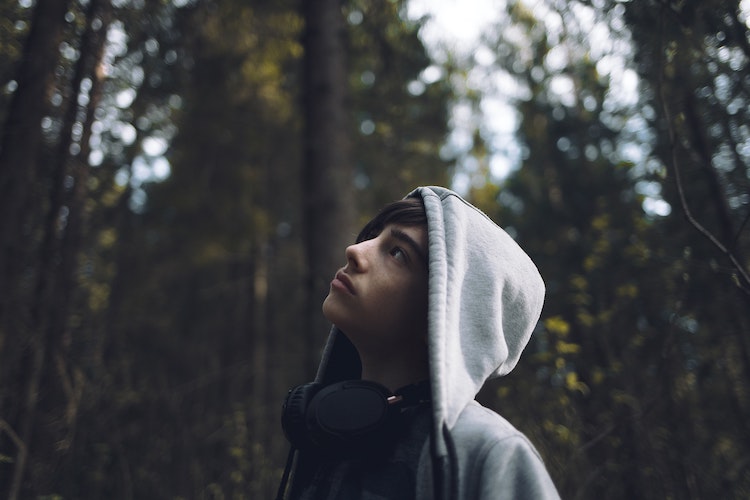

1. Check in on social media
I’m not overly nosy when it comes to Flea’s social media use. But I check in once in a while. I’ll look at Snapchat stories and Insta DMs and what TikTok videos are on her For You Page. I see the jokes, the memes, the political statements that boys (and girls) that my daughter knows are posting, watching and sharing. Sometimes, it’s scary. And whatever parental controls you have, the kids can get around it.
One boy I’ve met posted a series of videos with captions like, “When girls have no [breast emoji] but a big [butt emoji]…” while he mimed to a song lyric, “Damn, those are the bitches I want.” That’s a very popular style of content among nice 15 and 16 year olds, these days.
Then there are posts boys share about sexual assault statistics – mostly either claiming the stats don’t reflect reality because “most rape allegations are lies from women” or commenting on the small percentage of women not affected with comments like, “They must be the real uggos!”
Hilarious.
I think it’s easy to say this isn’t something YOUR kid would do, because he’s a gentle/kind/sensible boy. But as a parent to a teen, if I’ve learned one thing it’s that they’re all “that kid” at some point. Because they’re young and naive and don’t have enough life experience to weigh the impact of posting those words and sentiments against easy popularity and getting a laugh.
So check in with your sons. Talk about how that meme might discourage a girl who was assaulted from coming forward and getting help. How that song lyric might make your girlfriend feel about her body, and your view of it.
Above all, talk about how this language creates a culture where women don’t feel safe, or respected. Do they think it’s fair that this happens? How could they stop being a part of that problem?


2. Talk to teens about porn
There’s a TikTok I saw a while back that made me stop in my tracks.
It’s match day in a high school auditorium and the school band starts playing music. Within seconds the whole place is in uproar. And I had to look at the comments to realise why – the band was playing the musical jingle that plays at the start of every video on Pornhub. And every teenager in that auditorium recognised it.
Our teens are watching porn. You may or may not approve of that, but it’s reality.
The problem is that porn gives young people a really distorted view of sex. The most popular videos tend to involve more extreme forms of sexual contact, and a huge proportion will involve women being “forced” to do something. Even in the more regular videos, women are regularly slapped, their hair is pulled, their bodies pinched. The video captions are all about hoes and bitches and sluts.
We need to educate our sons to understand where this content comes from. Like – this action is filmed because it looked a certain way on camera, not because it necessarily felt good for anyone involved. This storyline is rooted in male fantasy, and isn’t the sort of thing you should expect that your girlfriend will want to do. Never use violence in a sexual context unless someone has specifically and clearly asked you to do so.
Is that an awkward conversation to have? Maybe. But I really and truly think that educating boys about what sex should look like, and how to approach sexual contact and relationships is a vital step in protecting our daughters.
3. Educate your sons to be allies
Teaching our sons about violence towards women and being safe is important so they can be better men. But it’s still not the whole story. We need to educate our sons to be the allies that women need.
If we want to make our culture safer for women, what we need are men who will call out these behaviours as unacceptable. Not men who will say, “It’s not ALL men,” or, “Men get attacked too, you know.” (eye roll). We need men who understand why women are angry – and they should be angry too.
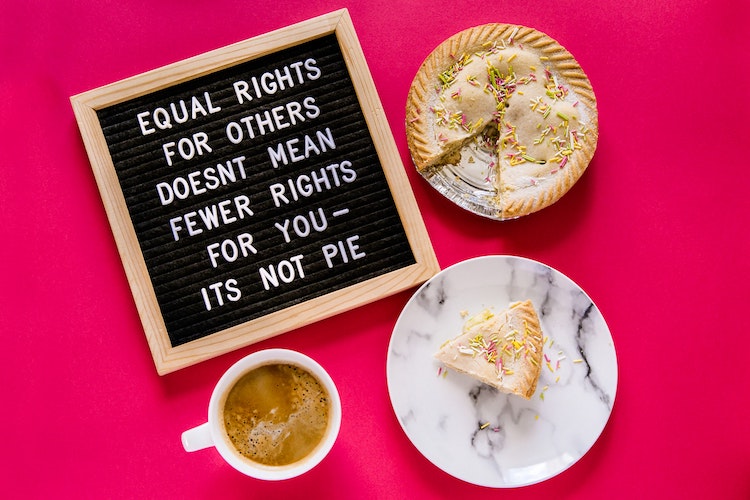

That’s got to be more than a conversation. You can’t get teens to do something as hard as standing up to their peers with a chat. You need to model that behaviour for them, from a young age.
Whether we have boys or girls, we need to raise kids who know it is their responsibility to step in when something is wrong. So be the parent who goes into the school to complain about a lack of inclusion. Challenge the parent who thinks that a trans girl has no right to be on a sports team. Speak to the kids who are bullying someone smaller on the playground, challenge your Dad when he makes a sexist remark. And every time you do that, you tell your child, “It only gets better if you say something.”
It’s not always easy but your kids will learn from your actions. Make sure they know even if they feel like they can’t challenge the person saying something offensive, they can tell someone else. An adult. A teacher. A coach. Their boss at work. They can report offensive Tweets and social media posts. They can block people. Anything is better than silently letting toxic behaviour go unchallenged.




